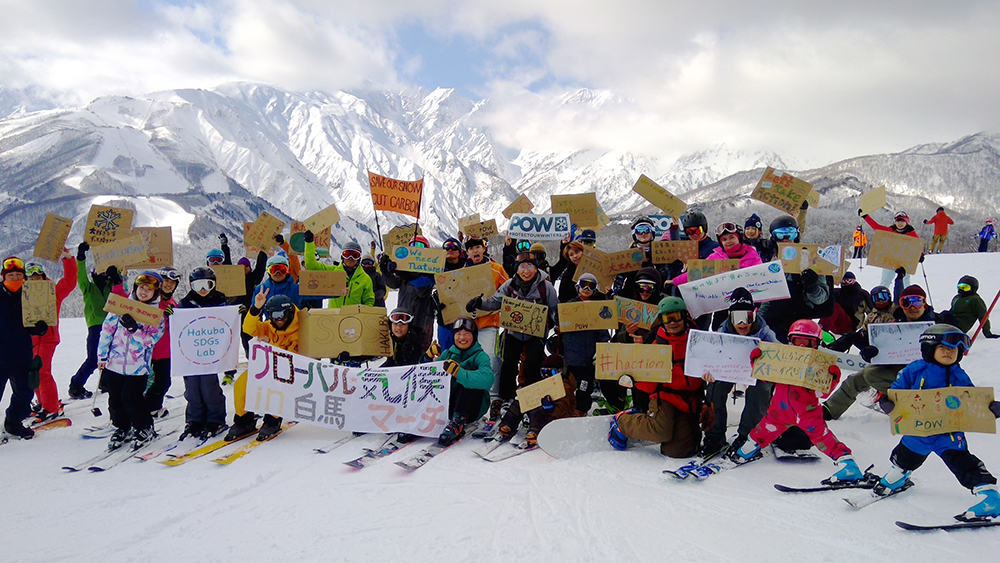*The photo above is from the slope climate march held at Iwatake Snow Resort in 2020.
Protect Our Winters (POW) is making choices and taking actions with an awareness of a decarbonized society in order to protect the natural field from the crisis of climate change. We interviewed Goro Komatsu, the representative of POW JAPAN, and Hitomi Suzuki, a secretariat staff member, about the background to the launch of POW JAPAN in Japan, its thoughts, actions, and vision.
Broadly speaking, the situation is definitely 'no more waiting'
――How was the 2021-22 season looking back?
Komatsu: It was a season in which I skied the powder to my heart's content. The amount was amazing this year, but the quality of the snow was good. It was cold and didn't warm up.
――It was the first time I saw Lake Aoki completely frozen. (STEEP editor-in-chief moved to Omachi City for the second year)
Komatsu: Me too! I've lived here for 16 or 17 years, but this was my first time. When I came here, there was a year called 2006 with a heavy snowfall, but since I moved to Omachi, it's gotten warmer and warmer (laughs). Since then, I don't think anyone would be surprised if it rained in January.
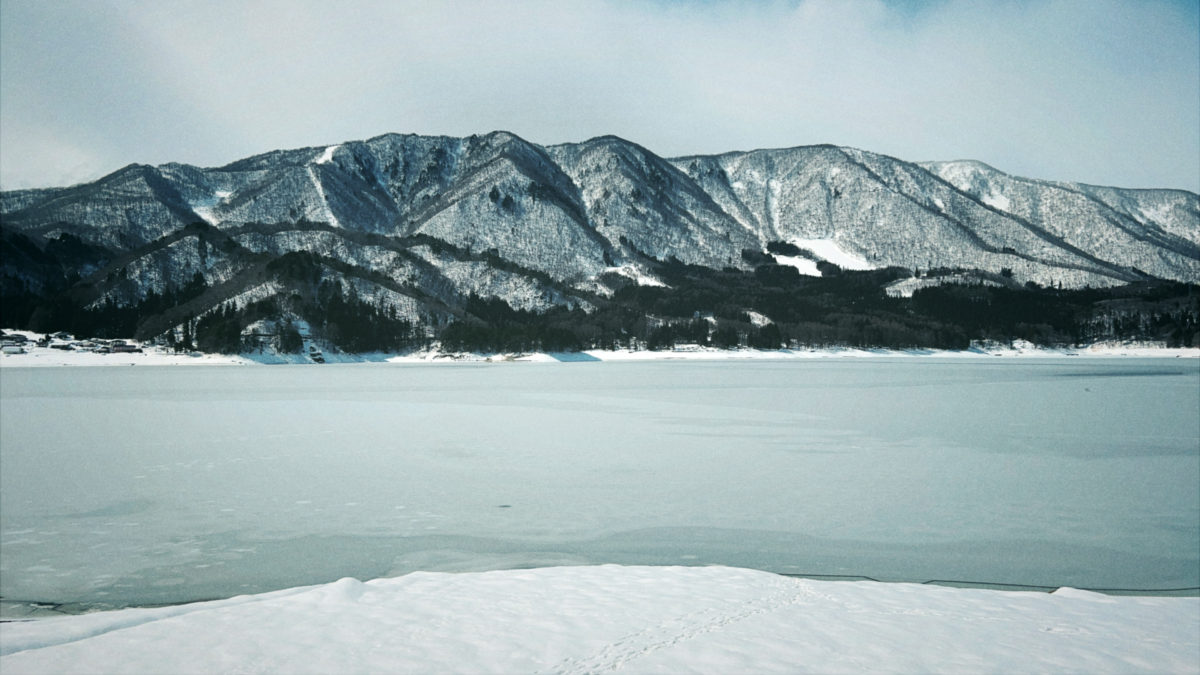
――If you look only at this year, you get the impression that it's snowing a lot, but if you broaden your horizons and look at it on a global scale, you can really feel that the winter is getting shorter and it's not snowing. Shall we?
Komatsu: I think so. Summers are hot, winters are warm, and snow is decreasing, which is a clear trend. I didn't expect a time when it wouldn't snow like this. I'm in trouble, but I have to face it with that kind of thing.
――In the midst of the situation of “no more waiting”, a campaign called “AT4NEN” is also born.

Since the Industrial Revolution, the average global temperature has already risen by more than 1°C.
“AT4NEN” campaign
By 2030, greenhouse gas emissions must be halved compared to 2010 levels to limit temperature rise to the 1.5°C needed to avoid the catastrophic effects of the climate crisis. For this to happen, a global reduction of 7.6 % is required every year for the 10 years from 2020, but for the five years from 2025, a reduction of 15.4% is required every year, which is said to be nearly impossible. I'm here. In other words, we only have four years left.
http://ato4nen.com/ ”
Komatsu: That's what they say. Arctic ice is also disappearing at an amazing speed. The effects of being too hot are everywhere. If there is no snow, there will be places where there will not be enough snowmelt water, and on the other hand, heavy rains will increase more and more. It is said that if nothing is done about it, global warming will continue and these phenomena will increase. Last year I said 4 more years, so this year it's already 3 years. There is no doubt that you have to do it quickly.
POW JAPAN started in 2019!
The Beginning of Climate Action
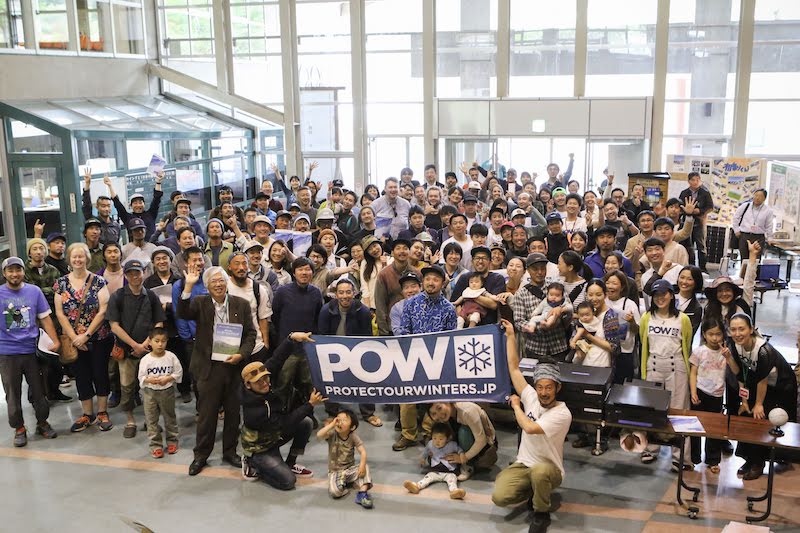
――It has been 4 years since the establishment of POW. Especially in the Hakuba area , various actions have been achieved in the last three years The number of participating ski resorts has increased, and now Hakuba Valley as a whole is starting to move in that direction. I think you can definitely see the results of POW's efforts to raise their voices and involve others in their efforts to tackle climate change. What was the process like?
Komatsu: Until then, I don't think the snow community had done much to address climate change. However, I think many people, including people at ski resorts, felt that the amount of snow was definitely decreasing. If I keep silent like this, won't it stop snowing? I think the fact that POW started at a time when everyone was starting to feel a sense of crisis was one of the reasons. For us, the decrease in snow is a negative thing, and I think that the snow community as a whole felt that if there was something they could do about it, they would want to do it.
At that time, it was still before the corona crisis, so there were a lot of inbound customers from foreign countries, and there were many foreigners working in Hakuba. It seems that such an opinion was also delivered to the ski resort. In that sense, I felt that if I had to do something, I wanted to do it.
That's why, rather than pushing our backs, I think everyone was waiting for something to happen. Therefore, in 2019, concrete activities began with the holding of a symposium. Yes, 2019 is the year Greta became very famous.
-It 's Greta Thunberg . A Swedish environmental activist who advocated global warming. She was 16 years old and she also spoke at the UN Climate Action Summit 2019.
Komatsu: That's right, it was the first year in which there was a sense that something had to be done to tackle the global climate crisis and climate change, and that something had to be done, so the timing was perfect. I think.
From there, I held a symposium where I had the opportunity to speak with the mayor of Hakuba Village, Shimokawa, and Governor Abe of Nagano Prefecture. Hakuba, as a mountain resort that represents Japan and can be proud of to the world, has also begun to promote environmental initiatives. The movement of the village as a whole to go in that direction started at just the right time. It may be said that we started on that occasion. This was the background to begin with.
――A video about the Hakuba Valley SDGs was recently released on YouTube. Was POW involved in this too?
Komatsu: Yes. HakubaVALLEY is a framework in which the three municipalities of Omachi, Hakuba, and Otari will start working as a single tourist area. We had a meeting. One of them was the SDGs subcommittee.
It was around that time that POW started, so I was invited to participate and was accepted into the meeting. So we talked and discussed various things, and everyone in the SDGs Committee worked together to create this movie, booklet, SDGs action list, and so on. It's been about two and a half years now, but they're finally starting to take shape.
An era where environmental efforts become the standard of value for resorts?
--Has there been examples of such environmental initiatives overseas for quite some time?
Komatsu: At the symposium we held, we invited Luke Curtin from the United States. It seems that Vail started working on the environment 16 or 17 years ago. At the time, only Vail and another small resort had environmental departments.
As the environmental department proceeds with various activities, the environment itself will of course improve, and the number of people around us who support them will increase steadily.
From there, the atmosphere of "everyone has to do this" came out, and now almost all large resorts in Europe and the United States have an environmental department. Suzuki: I once saw a feature called “Top 10 Sustainable Resorts” in an overseas outdoor magazine “OUTSIDE MAGAINE”. It was evaluated in various categories, and POW (USA) was also among the judges.
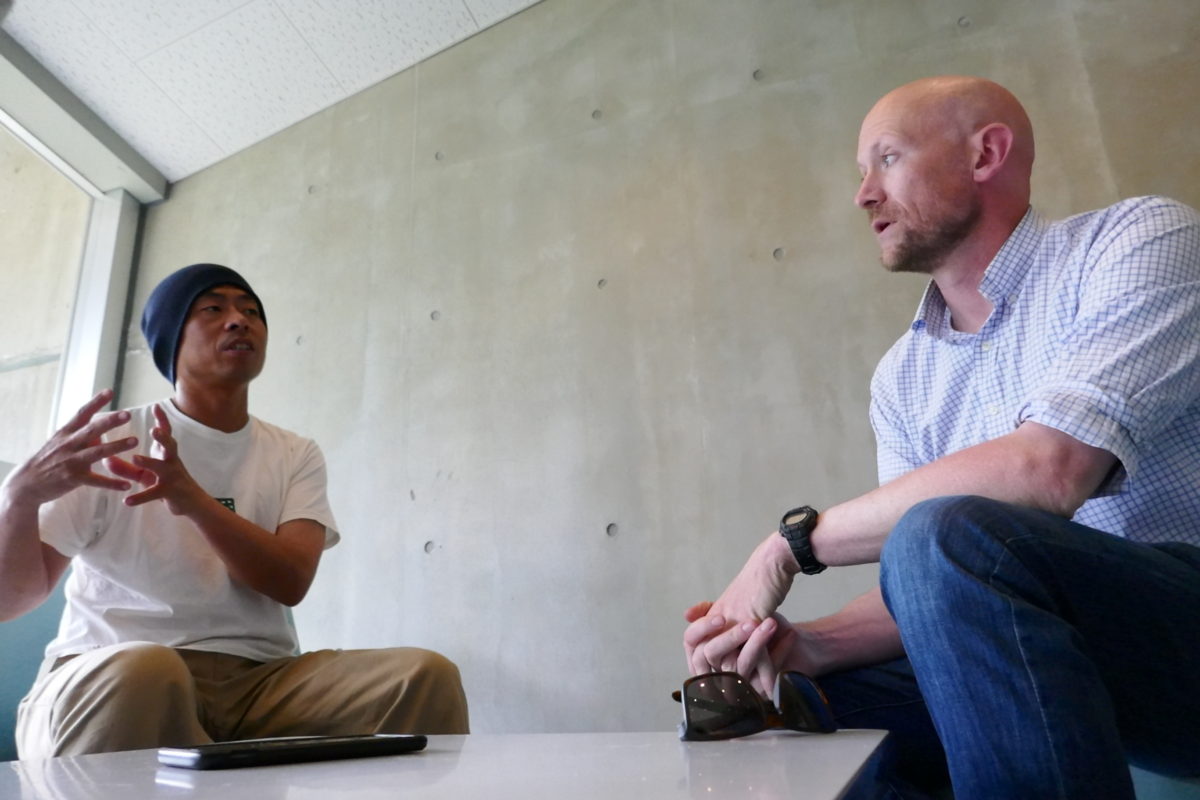
――Does it become commonplace for ski resorts overseas to be evaluated on their environmental efforts, along with standards such as the size of the ski resorts and the degree of difficulty of the slopes?
Komatsu: As an example, it seems that they no longer need to advertise their services like they used to. Concerning environmental initiatives, sending out messages such as ``I have achieved this'' or ``I have started this kind of thing'' can be effective advertising, and can serve as a criterion for selecting places where environmental initiatives are smooth. I hear that the number of customers who are using it is increasing.
――In that respect, Japan is still in the future.
Suzuki: This item was also included in the "Climate Change Awareness Survey" that we held at POW this time. The question is, "What are the conditions (reasons) for choosing a ski resort?" As a result, the quality of snow and the ease of access came to the top of the list, and environmental efforts finally came in at about 4th or 5th place.
――But environmental initiatives are already in fourth place.
Komatsu: If the activities and publicity progress from here, I think there will surely be a movement to evaluate it.
I'm sure we'll be able to connect
――Do you have a vision of what you want to do in the future in order to spread your ideas and activities more widely?
Komatsu: Even if only POW says that, I don't think it will happen. That's why I think it's very important that the snow industry as a whole, including manufacturers and the media, support such movements, and create an atmosphere that encourages people to think about the environment. .
Of course, it is important to encourage skiers and snowboarders, but I think it is very important to spread that kind of atmosphere throughout the town like Hakuba.
――Where is HakubaValley as a model case?
Komatsu: Mr. Katashina Kogen also has a desire to work on environmental issues, so he contacted me two years ago when the coronavirus crisis began. POW created an opportunity to give a lecture to all the ski resorts in the Katashina area about basic knowledge about climate change and global warming, as well as advanced cases overseas.
After that, there are parts where we push each other while exchanging, but it's already getting more and more self-propelled. We are currently using renewable energy at around 30%. After all, ski resorts with thoughts are showing us that they are going strong like this.
――As a criterion for choosing a place where the slipper will slide, the ski resort is operated with a strong consideration of environmental initiatives, such as whether or not the lifts and snow machines use renewable energy. are you going to see
Suzuki: That's part of it, but for example, Iwatake Snow Mountain Resort is doing plastic-free, Able Hakuba Goryu's restaurant "Sol" is local production for local consumption of ingredients, Hakuba Happo is recycling lift tickets... . I think there are various initiatives, regardless of renewable energy. It would be nice if there was a list of initiatives posted on some website, with a checkmark next to the ones that are already being implemented, or something that could be seen at a glance on the Yukiyama app. I think it would be great if the POW site could include that kind of information as well.
Komatsu: Plus, I think it's very important what kind of perspective the viewer has.
I think there are quite a few ski resorts that have started to think about the environment and take action, even if they haven't reached the point where they have yet reached the point of making a big move to convert electricity to renewable energy. I think that it will be an important point to develop this movement so that visitors can have such a perspective so that they can properly pick up on such things. ――Even if a company is working on environmental issues, if the people who choose it don't understand the standards, they won't go. Is it one of the actions that we, users, can do in the same way as signature activities, raising voices, buying things, and cultivating a discerning eye? I believe that the accumulation of such small steps will lead to changes in the social system.
Suzuki: I think one of the keys is how to expand the base. Partner companies and POW ambassadors have many fans and users. I think it's important to borrow the power of those people and sow seeds in other categories that POW alone can't reach. It's a very straightforward step.
Komatsu: I think that's a really good point. In the end, I think it's not that "there" changes, but that the people behind it change. After all, there are many things that we cannot reach on our own, so it is very important to increase the number of people who reach out together with us.
Suzuki: I think that's an issue for POW as well. I want to work with more people. We will provide the knowledge and ideas that POW has on this issue, and if working together can expand what the other has, please use POW. I think it would be great if we could co-work well.
Komatsu: People who play in the snow may use different equipment, such as skis or snowboards, or may have different orientations such as alpine skiing, basic skiing, or freeriding, but they are all people who ski on the same snow. . Not only snowy mountains, but also people who play outdoors, there is definitely a desire to protect nature in everyone's heart, and I think it fits perfectly. That's why I don't think collaboration is that difficult. I think that I can definitely connect there, so I think that I really just have to do it.
to be continued
the person who taught me
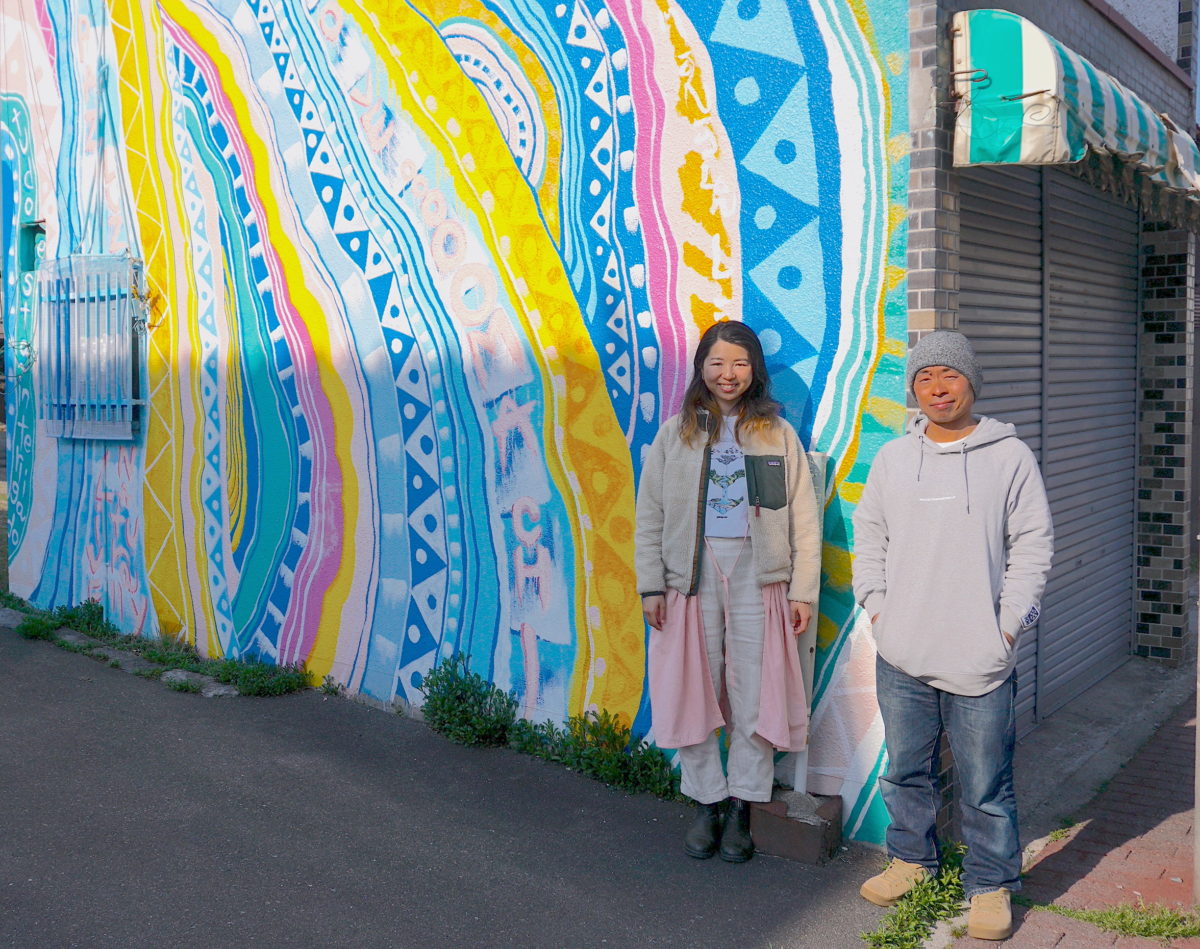
Hitomi
Suzuki
Digital Marketing
Born in Fujisawa City, Kanagawa Prefecture, and lives in Omachi City, Nagano Prefecture.
After working in customer service at Patagonia, he gained experience in digital marketing. He moved to Nagano prefecture after encountering POW JAPAN with the desire to "live in a place closer to nature."
Goro
Komatsu
Representative Director
Born in Niseko Town, Hokkaido.
Lives in Omachi City, Nagano Prefecture. He started skiing at the age of 4 and moved to BC Canada at the age of 12 to become a professional snowboarder. Even before the establishment of POW when he was living in Canada, he has continued to advocate reducing the burden on the natural environment. In 2018, he launched POW JAPAN as a representative director.

https://protectourwinters.jp/
Narrator: Goro Komatsu, Hitomi Suzuki (POW JAPAN) Interviewer: Takeshi Ogawa (STEEP Editor-in-Chief)
Interview recording: April 2022

